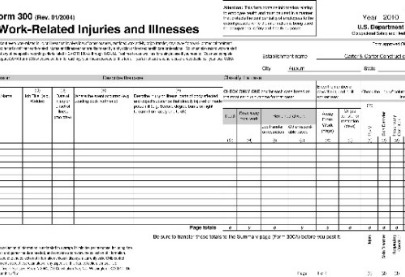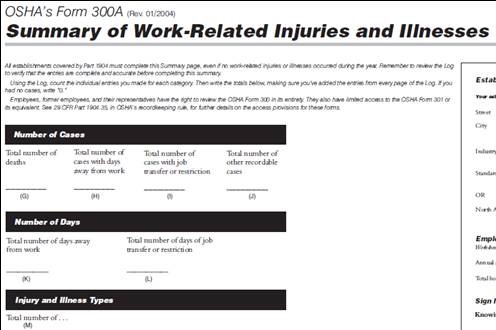OSHA Recordable? COVID-19 Cases and other EHS Return to Work Issues
June 1, 2020



BY STEVE BECKMAN, QEP, CPEA
Many manufacturing, logistics, and service companies are in the process of returning to operations as states re-open from COVID-19 shelter-at-home orders. Critically, facilities must consider the Environmental, Health and Safety (EHS) implications of employees returning to work.
COVID-19 Cases – OSHA Recordable?
When do employee COVID-19 illnesses become OSHA recordable injury cases? On May 19, 2020, OSHA revised its Enforcement Guidance for Recording Cases of COVID-19 to clarify that an employee COVID-19 illness is "recordable" if the case is work-related as defined by 29 CFR § 1904.5 and the case involves one or more of the general recording criteria in 29 CFR § 1904.7. OSHA recognizes the uncertainty in determining whether cases are work related – “Given the nature of the disease and ubiquity of community spread… it remains difficult to determine whether a COVID-19 illness is work-related, especially when an employee has experienced potential exposure both in and out of the workplace.” The guidance indicates that OSHA will exercise its enforcement discretion in these cases, and outlines criteria it will use in determining whether an employer has complied with the obligation to make a reasonable determination of work-relatedness.
Other EHS Return to Work Considerations
Injury and Illness recordkeeping is just one small aspect of EHS "return to work" considerations. Other important issues to consider include:
- Are employees still focused on safety procedures as they return to work? Should you consider refresher training?
- Is emergency equipment such as fire extinguishers and eye wash / safety showers still accessible after reconfiguring the workplace for social distancing? Are evacuation maps and procedures still accurate?
- Are EHS training and emergency drills still current for employees returning to work?
- Are EHS inspections (emergency equipment, storage tanks, waste storage areas, pressure vessels, cranes) up to date?
- Is preventative maintenance required on equipment such as cranes and powered industrial trucks that have not been used during shutdown?
- Have job hazard analyses been updated for reconfigured or relocated workstations?
- Have new hazardous chemicals such as cleaners and sanitizers been reflected in the facility’s HazCom program?
- Have employees been trained in the care and use of new PPE?
If you or your organization is interested in EHS support prior to or after resuming operations, feel free to contact Steve Beckman at Goldenberg Schneider Consulting, LLC: sbeckman@gs-legal.com .
#EHS #COVID #OSHAreporting